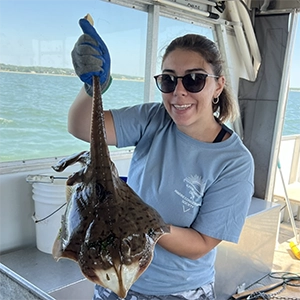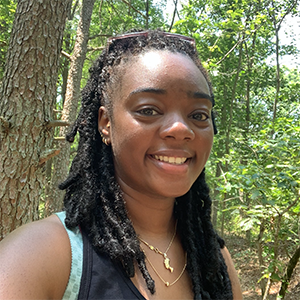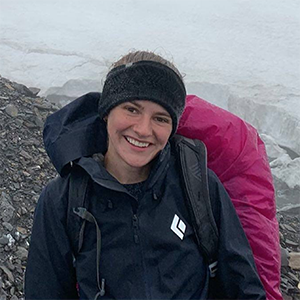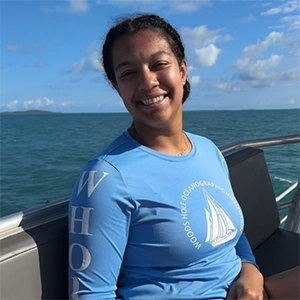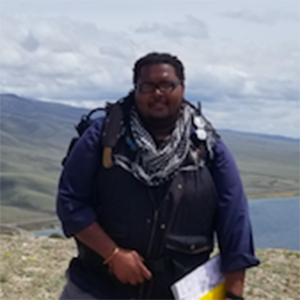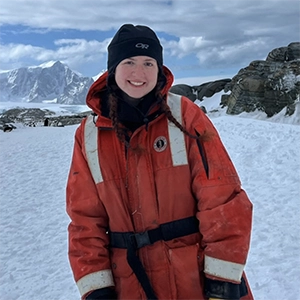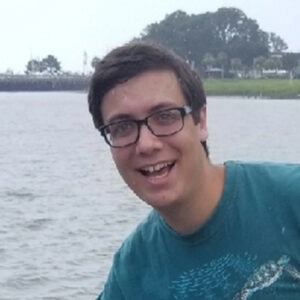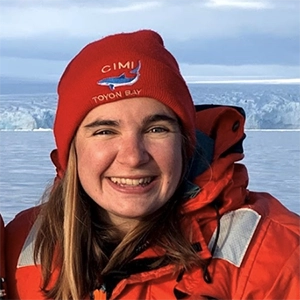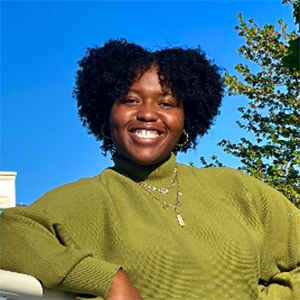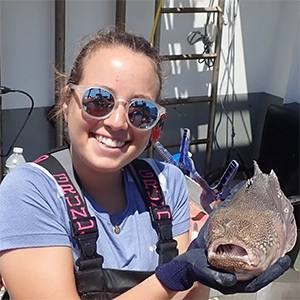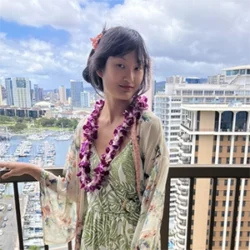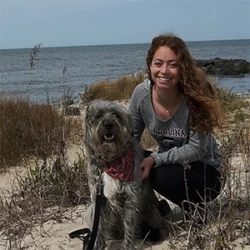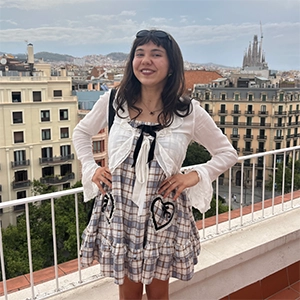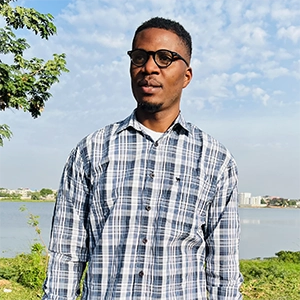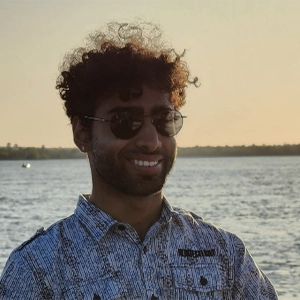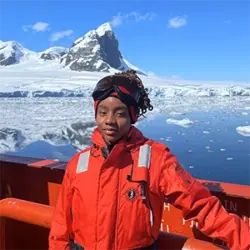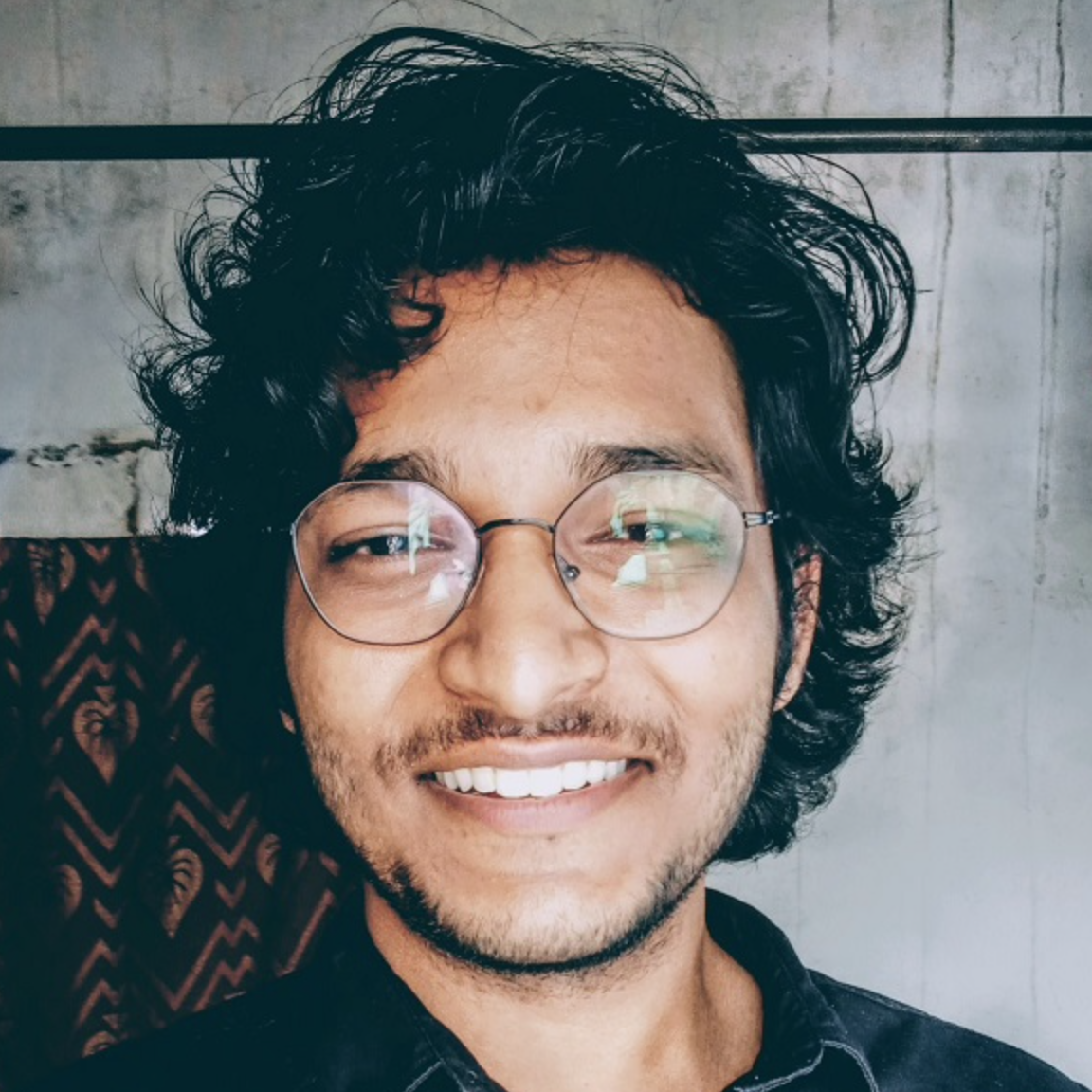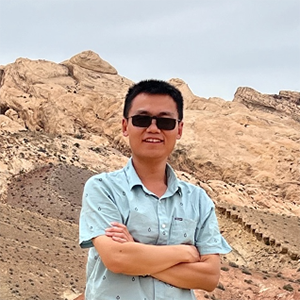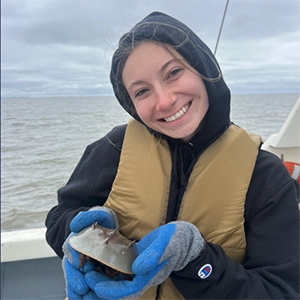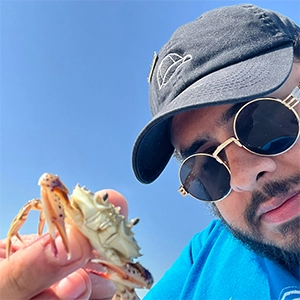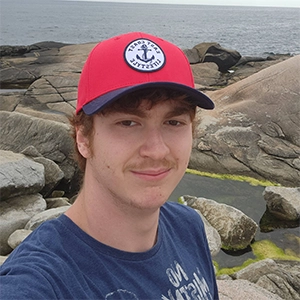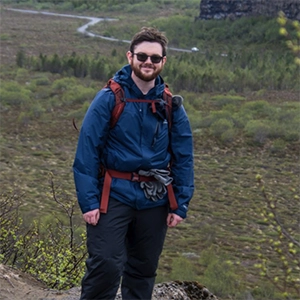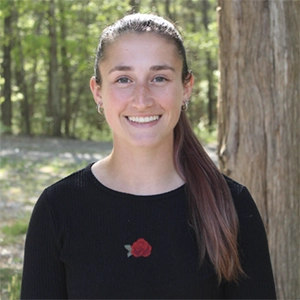Graduate Students in Oceanography
Samantha Alaimo
Downloads
Short History
I grew up on Long Island and spent a lot of my summers in Pennsylvania fishing and exploring. I was always around the water in some capacity and that’s where my interests in marine biology started. I graduated with my BS in Marine Biology (and math minor) from the University of New Haven in 2021. My research there was focused on the spatial distributions and habitats of four flatfish species in the Long Island Sound and the characteristic polynomials of symmetric matrices. I also studied Sustainable Fisheries at the Shoals Marine Laboratory on Appledore Island, ME. Outside of work, you can probably find me fishing, swimming, skiing, kayaking, at the beach, or taking pictures.
Research Interests
Broadly, I am interested in how the physical features of the ocean affect commercially important fish populations. The fishing industry not only provides food to the world, but also contributes a lot to the economy. How will changes in the oceans affect them? More specifically, I am interested in how offshore wind development off the coast of NJ is going to affect fish populations. As an avid fisher, I am interested in how offshore wind is going to affect the fisheries.
Education
2021-Present, Ph.D. Student, Oceanography, Rutgers University
2021, B.S. Marine Biology, University of New Haven
Alexandria Ambrose
Short History
I was born and raised in Detroit, MI, where my interest in science was sparked. My interest in marine systems did not evolve until I started my undergraduate degree. I received my B.S. in Marine Sciences from Savannah State University in 2019. After graduating I started as a lab tech at the Haskin Shellfish Research Laboratory for a year. There I mostly worked on the ecology of oyster at different life stages, using multiple techniques. I am starting as a master’s student in the graduate program of oceanography in 2021
Research Interests
On a broader scope, I am interested in how organisms are using available resources in changing habitats and how these changes can impact an ecosystem. I am also interested in studying how non-aquaculture species interact with sustainable aquaculture practices. My research will focus on the habitat enhancement of hard clams to improve larval recruitment. This work will also include the preservation of clam farms from cownose ray predation in Great Bay. In New Jersey, the hard clam aquaculture industry has decreased in recent years due to multiple factors including, cownose ray predation and limited leasing sites. There is the potential for new leases to be permitted but in deeper waters, but they would be more difficult to maintain. Determining habitat enhancement methods that are low maintenance for the farmer and prevent cownose ray predation could be beneficial to the farmer and the overall clam aquaculture industry in New Jersey.
Lois Anderson
Research interests
I am broadly interested in processes driving the retreat of marine-terminating glaciers. At Rutgers, I work with Rebecca Jackson and the Polar Coastal Dynamics group to investigate ice-ocean interaction in proglacial fjords lining the coast of Kalaallit Nunaat [Greenland], using numerical models. Fjord conditions and fjord-scale circulation modulate submarine melt rates at glacier termini, as well as the final properties of glacially-modified water entering the continental shelf ocean. At present, the impacts of fjords’ exchange flow on both glaciers and the ocean remain poorly constrained, and represent an important gap in our ability to model changes in both systems. I am a huge proponent of community science and the co-production of knowledge pertaining to environment, though a newcomer to both.
Short history
I finished my BSc with the Department of Geophysical Sciences at the University of Chicago in 2019, where I was fortunate to be able to explore my interest in the changing cryosphere through the complimentary lenses of geophysics, sociology, and art. In 2017, I worked under the Juneau Icefield Research Program conducting passive seismology fieldwork across Taku Glacier, and it was this field experience that really solidified my existing interest in the dynamics of marine-terminating glaciers. When I’m not in the office, you can find me running, climbing, foraging, and dumpster diving around town. I love being outside, and I love finding little treasures.
Have any burning questions about glaciers, interdisciplinary research, or where to find the best trash? Feel free to reach out at sigrun@marine.rutgers.edu.
Education
2019, BSc, Geophysical Science; Environmental Science, University of Chicago
2021 – Present, PhD Student, Graduate Program in Oceanography, Rutgers University
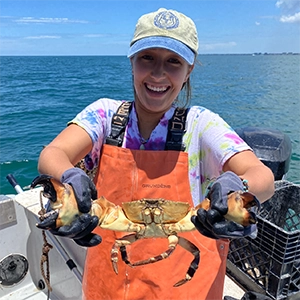
Graduate Student
- HSRL
Talia Barry
Short Bio
Growing up exploring the marshes and tide pools in Long Island Sound fostered my passion for the ocean. After getting a taste of research in high school I was hooked on science. I pursued my BS at the University of Tampa with a double major in marine science and biology. During my undergraduate education I studied the impacts of the stone crab fishery practices on the intraspecific interactions of stone crabs. In 2022, I was an NSF REU at the Bermuda Institute of Ocean Sciences studying coral thermal resilience. My research interests are mollusks and crustaceans. In my free time I like to hike, go to the beach, and go scuba diving.
Cody Benton
Downloads
Research Interests
I am from Wilmington, North Carolina and studied physics at UNC Wilmington. After graduating I worked as a research assistant at the Center for Marine Science where I helped process and distribute data collected by an array of moorings on the NC shelf. I used the data to investigate the ocean’s physical response to tropical and extra tropical storms, as well as establish climatological trends in the coastal ocean. My research interest going forward is in the physical processes that govern coastal and estuarine systems. These regions are of particular interest to me because of the impact they have on society. Since most of society resides near a coast, it is important that we understand the physical processes and how human activity may impact them.
Short History
I grew up in Wilmington, North Carolina, with the ocean at my doorstep. I have always enjoyed being outdoors and having a good adventure. This led me to six summers as an ocean lifeguard and hobbies such as surfing, hiking, and camping. On the other hand, I have always been curious in asking “why” and “how” things work. This curiosity led me to a degree in physics at UNC Wilmington. While studying at UNC Wilmington I was fortunate enough to discover the perfect intersection of my interests, physical oceanography.
Kayla Cayemitte
Short Bio
My undergraduate education is from Ursinus College where I received a B.S. in Biology with minors in studio art and scientific ethics. My fascination and love of coral science began here, working in a lab where we investigated a combination of anthropogenic stressors on the coral Astrangia poculata. I continued my education over the summer of my junior year at Woods Hole Oceanographic Institution where we examined the effects of an invasive encrusting algae on coral larvae settlement. I joined Dr. Prada’s lab as a lab assistant and will be starting my Ph.D. under her advisement. I plan to focus on the effect of anthropogenic stressors on coral reefs in refugia systems. My area of study is Biological Oceanography, Coral Science. My hobbies include cuba diving, photography, hiking, travel, cooking/baking (I am a huge foodie and love to try new foods)
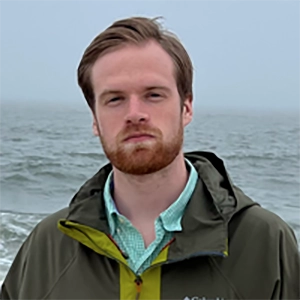
Graduate Student
- HSRL
Paul Coyne
Research
I am a Graduate Assistant under Ximing Guo at the Haskin Shellfish Research Laboratories. The research project I am currently assisting with involves assessing what genetic markers are linked to QPX-disease resistance, fitness, and growth in hard clams. This involves following the survivability of these clams from larvae to market size over the course of multiple years.
Short History
Though born with plenty of access to the coastal waters of New Jersey, my appreciation for aquaculture began only in high school. My senior year, I researched, proposed, and constructed an aquaponic system of tilapia and native plant species, which still produces for my high school today. In college, I continued to explore aquaculture by working as a water quality technician at a local zoo, allowing me to work with various species of fish. I have now begun work with shellfish aquaculture in Cape May at the Cape Shore Laboratory. Here, I happily work with various shellfish species such as oysters, scallops, and hard clams.
Education
Present: Masters Student in Oceanography, Rutgers University
2021, B.S., Marine Science / Animal Science, Rutgers University
2019, A.S., Biology, County College of Morris
David Davis
Short History
My name is David Davis. I was born in Keflavik, Iceland, and raised in Merced, California. I graduated from Georgia State University this spring with a B.S. in geology. While at GSU I was part of a research group that has been participating in the Hominin Sites and Paleolakes Drilling Project (HSPDP). My work focused on trying to identify the links between climate and tectonic changes and how they may have influenced human evolution by analyzing the clays and zeolites from paleolake beds in the East African Rift Valley. During the 2017 and 2018 summers I worked at WHOI, analyzing vanadium isotopes in Martian achondrites and carbonaceous chondrites and eucrites from 4 Vesta. The purpose of this research was to characterize the irradiation history of the early solar system, but also to investigate the production of vanadium in our solar system and to understand how the Earth formed.
Research Interest
I am now an incoming PhD student and I’ll be working with Yair. For now, my project will be studying the Earth’s marine and atmospheric iodine cycle. I am curious to know if I can use oceanographic methods and the stable isotopes of iodine to elucidate whether Earth’s marine-atmospheric iodine cycle is a detectable biosignature and if it is, can I use that data to assess the habitability of other planets and ocean worlds such as Europa, Enceladus, and maybe Mars.
Rachel Davitt
Short Bio
I grew up in Randolph, New Jersey, and have been in love with the ocean for as long as I can remember! This led me to majoring in marine biology at the University of Delaware, where I graduated with my B.Sc. in 2023. While there, I interned with the Rutgers RIOS program, working under Dr. Kimberlee Thamatrakoln to study the effect of silicon limitation on host-virus dynamics in the diatom Chaetoceros socialis. Since graduating, I have worked as a seasonal marine field worker at the Rutgers Haskin Shellfish Research Laboratory under Dr. Daphne Munroe, and I am super happy to be back at Rutgers! Broadly, my research interests include understanding phytoplankton-environment interactions, how these interactions will change due to climate change, and the role of marine viruses in these relationships. I am also super passionate about scientific communication and outreach. Outside of work, I enjoy traveling, spending time outdoors, and trying new foods.
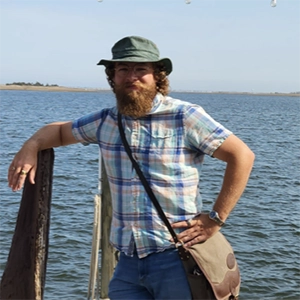
Graduate Student
- DMCS
Sean Devine
Short Bio
I grew up in Chatham, NJ where I fostered a love of the ocean through beach trips and reading. I received my B.S. in marine science and biology from the University of Miami in 2017, where I interned for larval ecology and oil drift prediction labs. After four years in the USMC followed by two years working as a fisheries observer in the NE region, I’m currently pursuing a master’s with a focus on biological and ecological modeling. Of the many diversions I enjoy, some include kayaking, string bass, swimming, poetry, and sketching.
Quintin Diou-Cass
Research Interests
I am currently interested in determining the primary factors mediating phytoplankton community dynamics in the western Antarctic Peninsula (WAP) with Oscar Schofield. I am particularly interested in how abiotic elements, such as light, dictate phytoplankton community diversity. I am looking to utilize metagenomic and metatranscriptomic methods to determine diversity and functional responses (respectively) in the Antarctic phytoplankton on a relatively finer scale than previous research. I am aiming to apply the results of my research, in combination with historical data, to extrapolate future long-term changes in the ecological and biogeochemical states of the WAP ecosystem under the context of a changing climate.
Short History
I grew up in south central Maine where as a kid I was often off exploring the woods, taking plaster molds of bird footprints, catching small fish and frogs in nets, or recording observations of animals in my small notebook. Although I only spent an average of a few days a year near the ocean on family camping trips in Acadia National Park or summer excursions to the beach, I became captivated by the ocean at a young age and have pursued learning about it ever since. I got my undergraduate degree in Ecology at Susquehanna University in central Pennsylvania, during which I spent half of my summers as part of the university’s Freshwater Research Initiative studying stream ecology. The rest of the time I spent down in Savannah Georgia at the Skidaway Institute of Oceanography, where I aided in examining coastal estuarine phytoplankton dynamics and phytoplankton-bacteria chemical interactions. I am driven by a desire to explore, and I ultimately hope to expand our understanding of the ocean in a way that is both impactful and engaging.
Education
2018, B.S. Ecology, Susquehanna University
2019-Present, PhD Student, Graduate Program in Oceanography, Rutgers University
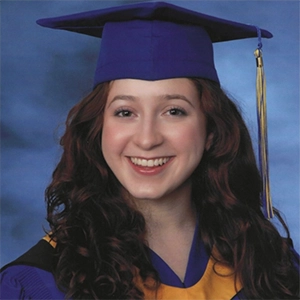
Graduate Student
- DMCS
Maya Feinstein
Short bio:
I am from Haddonfield, NJ. In high school, I played varsity lacrosse and soccer. I graduated from the University of Delaware with an Honors B.S. in Environmental Science as a Climate Scholar. My interest in Oceanography began sophomore year after learning about its connection with the climate system in an Introduction to Ocean Sciences class. My Senior Thesis was titled Vertical Motions in the Southern Ocean. I completed a summer project on this topic under Dr. Xinfeng Liang at the Lewes, DE marine campus. At Rutgers, I am advised by Dr. Javier Zavala- Garay in the Ocean Modeling Group. I am interested in the coupled ocean-atmosphere system, especially regarding vertical mixing, extreme events and the global overturning circulation.
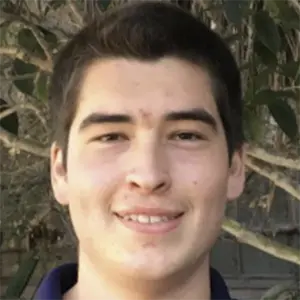
Graduate Student
- DMCS
Logan Gonzalez
Short History
A fascination with the origin of life led me to pursue a degree in biochemistry at the University of California, Santa Barbara (UCSB), where I got interested in marine microbes after taking a microbiome seminar. I did most of my undergraduate research in Holly Moeller’s lab using laboratory experiments and mathematical modeling to study the effects of climate change on the evolution of mixotrophic phytoplankton that are capable of predation in addition to photosynthesis. After graduating, I worked as a researcher at the Cold Regions Research and Engineering Laboratory, a part of the US Army Corps of Engineers, focusing mainly on biotechnological applications of cold-adapted microorganisms.
Research Interests
I am broadly interested in studying the interplay between microbial interactions and biogeochemical cycling in the past, present, and future. I’m particularly excited about marine virology as there are currently major gaps in our understanding of how viruses influence biogeochemistry. My research at Rutgers will help to address some of these gaps by focusing on the effects of viral infection on marine phytoplankton including the coccolithophore Emiliania huxleyi, a major player in ocean carbon export.
Education
2023-present, PhD Student, Biological Oceanography, Rutgers University
2020, B.S. Biochemistry, University of California, Santa Barbara
Ashley Hann
Research Interests
Short History
Leah Hopson
Downloads
Short History
While growing up in New York, specifically in the lower Hudson Valley region, I was able to explore many aspects of our environment. My interests in the environment grew from taking a high school earth science course to which I learned about tropical cyclones and thus, I developed a strong curiosity in extreme weather events. This led me to go on to study environmental changes and earn my B.S. in Atmospheric and Oceanic science from the University of Maryland. During my undergrad, I was able to participate in different research experiences, and over time, these experiences carved out my path in physical oceanography to understand air-sea interactions.
Research Interests
My last research experience during my undergrad solidified my interests in oceanography even further. This project, through Texas A&M University, focused on the relationship between ocean heat content and tropical cyclone induced rainfall in the Gulf of Mexico. With my atmospheric science research experiences and my oceanography related experience, I developed an interest in studying the dynamics of the ocean and atmosphere and understanding the intensification of tropical cyclones over time. I hope to gain many skills from the different areas of oceanography to continue studying extreme weather with my advisor Dr. Travis Miles during my time as a PhD student.
Education
2021, B.S. Atmospheric and Oceanic Science, The University of Maryland
2022-Present, PhD Student, Graduate Program in Oceanography, Rutgers University
Becca Horwitz
Short History:
I grew up in Brooklyn, New York, and had the East River estuary system as my backyard which has inspired both my career path and my research interests. I attended Carleton College for my undergraduate education where I received a double Bachelor of Arts degree in Geology and Environmental Studies in 2022. I participated in a Marine Science NSF-REU at Rutgers in 2021 between my junior and senior years of college. My work during my REU exploring fundamental shelf processes in the Mid-Atlantic set the stage for my current research. After graduating from Carleton, I worked for the Rutgers University Haskin Shellfish Research Laboratory where I learned about fisheries science and the shellfish industry. Long story short, I fell in love with Rutgers and I never left! Outside of work, you can find me rock climbing, sitting in my hammock, playing with my cat Trudie or training for a triathlon.
Research Interests:
I am interested in the overlap between physical and biological oceanography although I approach my research from a physical perspective. I strive to connect my research with the broader communities impacted by my science. Specifically, my thesis work focuses on using observational data to understand the frequency and drivers of marine extreme temperature events in the Mid-Atlantic.
Alice Jenks
Short Bio:
I grew up on the Long Island Sound, where I discovered my love for the ocean. I attended Farmingdale State College for my undergraduate studies where I majored in Bioscience and received a minor in Chemistry. As an undergraduate, I studied the filtering capabilities of marine sponges in relation to wastewater introduced by terrestrial run off. In addition to this, I performed pathogen screenings on farmed sugar kelp. Through previous studies, I gained a broad interest in using molecular techniques to study microbial ecology in the ocean. As a graduate student, my goal is to use molecular techniques to delineate the mechanism of coccolith shedding in Emiliania huxleyi and determine which proteins/lipids are involved in that process.
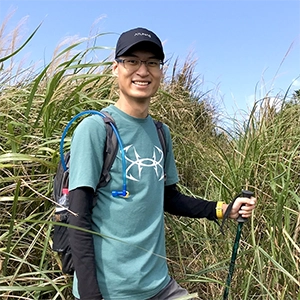
Graduate Student
- DMCS
Bor-jiun Jong
Short history
Growing up in Taiwan, where is constantly stricken by tropical cyclones, floods, and earthquakes, I have been interested in Earth Sciences since I was a kid. I am especially eager to find out the causes and mechanisms of the climate system and its impact on human society, so I majored in Geosciences for my undergraduate. Later, I studied paleoceanography with a focus on the Barium cycle in the Arctic Ocean for my master thesis. I analyzed the Ba/Ca ratios in planktic foraminifera to understand the driving factors of the Barium cycle in the Arctic Ocean throughout the last glacial period. When I am not in the lab, I love spending my time hiking, cycling, and swimming. I also enjoy reading books and watching Netflix in a cozy room when the weather is unforgiving.
Research interests
I am interested in reconstructing the history and mechanisms of the climate and ocean systems using geological records. I am particularly intrigued by the verification of paleo proxies through comparing them to modern records, and subsequently, improving our ability to reconstruct the past climate. By studying the past climate, I aim to better predict the possible future scenarios in a warmer climate.
For my PhD, I will focus on the climate impact of reverse weathering and apply isotopic analysis to marine sediment, comparing the modern and paleo records. The goal is to estimate the CO2 emission rate and scale of reverse weathering in the ocean and its significance to the climate system.
Education
2018, B.S., Geosciences, National Taiwan University, Taiwan
2021, M.S., Geosciences, National Taiwan University, Taiwan
2023 – present, Ph.D. Student, Graduate Program in Oceanography, Rutgers University
Jessey Kreinik
Short History
I am currently a student in the Graduate Program in Oceanography at Rutgers University. Broadly, I am interested in phytoplankton ecology, ranging from interspecific interaction to impacts on biogeochemical processes. Specifically, I will be working with Kay Bidle (Oceanography) and Juan Bonachela (Ecology and Evolution) to study viral infection of the coccolithophore Emiliania huxleyi and modelling how host physiology impacts characteristics of viral infection. During my undergraduate career, I worked with the dinoflagellate, Noctiluca scintillans, at Lamont Doherty Earth Observatory under Joaquim Goes, studying the impact of ocean acidification and hypoxia on growth, grazing, and symbiosis. I graduated from Skidmore College with a B.A. in Biology in 2021 and minored in geosciences. My love for understanding how abiotic processes influenced biology led me to the interdisciplinary world of Oceanography.
Education
2021, BS, Biology, Skidmore College
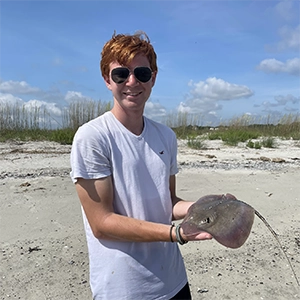
Graduate Student
- DMCS
Jake Kuenzli
Short Bio:
Research Interests:
Isabella Moore
Short Bio
Growing up along the Delaware Bay, I quickly developed a passion for the ocean. I spent my childhood flipping over
horseshoe crabs and learning to surf. For the past five summers, I worked for the Cape May Beach Patrol, which has been a very rewarding experience. I received my Bachelor’s degree in Marine Science from Stockton University. This year, I completed my Master’s in Marine Science with a concentration in Physical Oceanography at the University of South Carolina. I am excited to explore my research interests here at Rutgers! Pictured is my dog Zee, a rescue from Kosovo.
Nicole Nikolova
Short Bio:
Hi, I’m Nicole, but more often than not, I go by Nikki! I grew up within arm’s reach of the Atlantic Ocean, along the New Jersey coast, or as many like to refer to it, the Jersey Shore (i.e. the heart of reality TV). Frequent visits to the beach fostered my idea that watching the ocean felt akin to observing magic, I ended up here at DMCS, studying physical oceanography for my undergraduate degree.
My undergraduate time at Rutgers, working with DMCS faculty, revealed the inherent curiosity that drives the field of oceanography. So, while the spells and scrolls I saw in video games and files couldn’t feasibly be studied, I found ocean modeling to be a vessel for that same excitement and curiosity – one that I will now get to explore alongside my advisors John Wilkin and Javier Zavala-Garay for my Master’s degree. I will focus on using ocean modeling, coupled with observations, to reveal large-scale ocean dynamics, specificially in the Indonesian Throughflow and its surrounding regions, to investigate water mass transformations. My work blends numerical model analysis, mathematics, physics, and in-situ observational data to investigate marine dynamical processes. Furthermore, I hope to expand my research methods by utilizing new approaches that emerge as the field continues to evolve, and to extend my work into other areas, such as ocean forecasting.
While I love all things ocean-related, I’m also an enthusiast for pop culture, color coordination, and documentaries. I love seasonality, cats, when the name of an album is dropped in a song, and… is this where I say, long walks on the beach?
Benson Ossai
Research interests
I find physical oceanography fascinating because of its diverse and interdisciplinary topics such as the impact of ocean temperature variations on fisheries, sea level rise, sea surface winds and waves, ocean surface currents, sea ice, etc. I seek to understand the interactions between Estuary and Coastal systems. In particular, I am interested in how tidally forced saltwater intrusion in Estuaries during extreme droughts could impact the quality of drinking water. I hope to use a combination of field, lab, and numerical methods in investigating the physical dynamics of Estuary and Coastal systems. I am also interested in how freshwater coming from high-latitude -Arctic and Greenland Ice Sheets could be affecting the North Atlantic circulation and how this would impact our climate.
Short history
I grew up in a coastal community in the Niger Delta region of Nigeria where I often go fishing. In my early years, I always wonder how and what makes vessels float on water without sinking. This curiosity led me to study marine engineering at undergraduate level. After my final undergraduate exams, I continued working at the Center for Maritime and Offshore Studies, Federal University of Petroleum Resources Effurun as a research assistant where I got involved in research that deals with studying the ocean to bridge the gap between marine sciences and engineering. When I am out of work, I enjoy playing soccer, traveling, and camping.
Education
2019, B.Eng., Marine Engineering, Federal University of Petroleum Resources Effurun, Nigeria.
2023 – Present, PhD Student, Graduate Program in Oceanography, Rutgers University.
Bridget Ovall
Short History
I earned a B.S. in Oceanography at the University of Washington, where I first developed a fascination with the Arctic region, its unique place in the global climate system, and the complex ways in which local inhabitants are tied to the environment. After graduation, I spent a year working as a research assistant at WHOI studying the roles of sea ice and wind on circulation in the Chukchi Sea. Here at Rutgers, I am working with Rebecca Jackson, studying the role of marine-terminating glaciers on fjord circulation. The results of the interplay between glaciers and fjord waters have implications for both the ice sheets and the open ocean.
Trivik Ragha
Downloads
Education:
Mya Sharpe
Downloads
Short Bio
As a child, I didn’t have many waterways near my home growing up in Brooklyn, New York. During summertime, I would take the train to Coney Island beach for about an hour. My days there were spent searching the shoreline for washed up sea creatures. As discoveries grew, my interest peaked. A few feet from the shoreline, I dug a hole in the sand and filled it with seawater to create a makeshift touch pool. Then, unknowingly, I took my first steps towards my future career, by observing their anatomy and admiring their textures.
Research Interest
In our current era of rapid global warming, the polar regions are experiencing the most significant impact, leading to the retreat of perennial glaciers. This, in turn, affects phytoplankton blooms and community composition in coastal waters. My current research interests revolve around exploring phytoplankton ecology in the West Antarctic Peninsula (WAP). Specifically, I am focused on understanding glacial retreat dynamics, the trace metal composition of glacial meltwater, and how the availability of metals influences phytoplankton communities. This, in turn, plays a key role in shaping the biogeochemistry of nonmetals like carbon and nitrogen. A subtopic area of interest is the effects of copper (Cu) in low iron conditions, particularly in the context of glacial melt into coastal waters. Additionally, I aim to examine phytoplankton variations in fluorescence under iron-limited conditions.

Graduate Student
- DMCS
Suman Shekhar
Downloads
Short History
Having been born in a family of Indian Air Force personnel, I spent my entire childhood growing up on Air Force campuses. My father worked in the Meteorology Department, which gave me the privilege to see the functioning of the department. I used to visit his office; the idea of predicting the weather pattern by solving a coupled partial differential equation sparked my interest in learning Fluid Mechanics. But after joining the Indian School of Mines, I got an amazing opportunity to study a bit about earth sciences. It actually gave me the motivation to learn about the earth’s climate. However, my obsession with Fluid dynamics turned my path toward Oceanography. That was the way I could pursue climate science and fluid dynamics simultaneously. We know the ocean has an enormous role on the earth’s climate, and we still don’t know many physical processes governing these changes.
In my day-to-day research life, I spend doing lots of maths and coding. I use numerical modeling to study and model the physics behind the physical processes and am also an enthusiast of high-performance computing, which enables me to model much more refined scales. My undergraduate work was on modeling LES simulation of Polynya convection in the Weddell Sea, investigating the role of double-diffusion on polynya formation.
I will be joining Rutgers University this Fall and working with Professor John Wilkin.
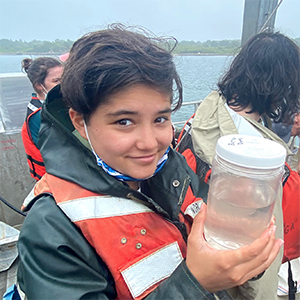
Graduate Student
- HSSRL
Hails Tanaka
Downloads
Short History
I was raised in Mississippi where I spent many summers going down to the Gulf and becoming fascinated with the ocean. As I moved into my undergraduate degree, I wanted to learn about as many aspects of the ocean as I could. In 2022, I earned my B.S. in Marine Biology from the College of Charleston in South Carolina. I will continue my education in the graduate Oceanography program at Rutgers starting in 2022 with Dr. Daphne Munroe.
Research Interests
My research interests include larval ecology, bio-physical interactions, and the impacts of climate change on invertebrate communities and populations.

Graduate Student
- DMCS
Jolie Tosten
Short Bio:
Although I grew up in Idaho, a landlocked state, my close proximity to many rivers led to my interest in aquatic ecosystems. In high school, my interests in aquatic ecosystems turned into a passion, and I decided early on that marine biology is what I wanted to pursue. I attended the University of Hawai’i at Mānoa to achieve this dream. My interest in microbial marine biology was fueled by a marine ecology class that I took my second year of college. That following summer I was lucky enough to be an intern at Mote Marine laboratory where I researched a mitigation technique of the dinoflagellate that is responsible for causing the Florida Red Tide. I have also worked with marine microbial fungi and most recently zooplankton, specifically how deep sea mining may impact these organisms. I am deeply interested in phytoplankton and how viruses, biogeochemical cycles, and climate change can impact these organisms. In my free time I enjoy being outdoors, especially hiking, going to the beach, and playing tennis.
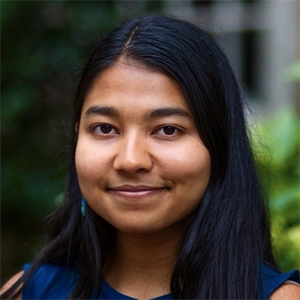
Graduate Student
- DMCS
Bhavyaa Tyagi
Short Bio:
I’m fascinated by the tiny dramas playing out in the ocean—where microbes interact and set the stage for processes like chemotaxis. My curiosity dives deep into how these unseen interactions shape marine ecosystems and influence the overall health of our oceans.
Qibin Xu
Short History
I have a broad interest in studying the past, present, and future of the ocean and its role in the global element flux as well as energy equilibrium. Based on the fact that multiple proxies in marine sediments can effectively reflect changes in the physicochemical state of seawater during historical periods. Combining our understanding of ocean processes (physical, chemical and biological). Predictions can be made about the role of the ocean in the context of future climate change. The future of the ocean will also become clear with the change of time.
Education
2013, B.S. Geology, Lanzhou University
2017, M.S. University of Science and Technology of China
(2017-2018, Geochemistry; 2018-2021 Environmental Science)
Master of Operational Oceanography

Graduate Student Master of Operational Oceanography | Laboratory Researcher
Brian Buckingham
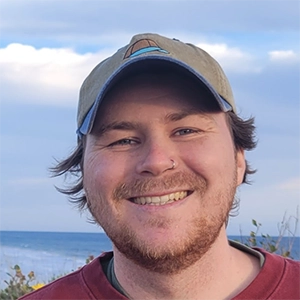
Master of Operational Oceanography
- DMCS
Elliot Brown
Short Bio
I am from Temecula, CA and in 2020 I graduated from CSU Channel Islands with a degree in Applied Physics. Since then, I have spent my time working as an engineer making test equipment for the aerospace industry and developing night vision cameras for the automotive industry. I am hoping to learn all I can from this program and combine that with the knowledge and skills from my engineering background to make a meaningful impact in working to combat climate change.
Jessica DeFeo
Short Bio:
I grew up in South Jersey and I graduated from Rutgers with my BS in marine biology. I came in as a food science major, but quickly realized my passion lies elsewhere. I had many great opportunities in my undergraduate career, such as researching zooplankton seasonality in the Mid Atlantic Bight for my Honors College Capstone project, studying the unique region of Patagonia for a couple weeks during the winter semester, and being a part of Rutgers’ Sentinel glider mission. The culmination of my undergraduate experience sparked my interest in marine technology. I knew that the Master’s of Operational Oceanography program would be the perfect fit for me because I hope to use technology in marine science as a means to work toward a deeper understanding of climate change and potential solutions.
Anthony Mendoza
Short Bio:
I grew up in North Jersey and later moved to South Jersey to pursue my undergraduate degree in Marine Science at Stockton University, graduating in 2025. I’ve always been fascinated by life on our big, beautiful Earth, an interest which was sparked by watching nature documentaries as a kid and wanted to be a zookeeper at one point. However, my real passion is for marine life, probably comes from growing up watching my dad care for his saltwater aquarium. As I progressed through my undergraduate studies, I realized that protecting our oceans requires both discovery and constant monitoring of human impact. Being introduced to remote sensing technologies like ocean gliders has given me hope and is what attracted me to the MOO program. As glider capabilities improve, I believe they will play a critical role in preserving marine ecosystems, especially through the work we’re doing here at Rutgers. As a personal goal, I hope to get involved in policymaking to defend marine organisms from industrial fisheries and toxic pollution, ensuring that future generations can experience our coastal waters as we do today. Also, I think crustaceans and fungi are amazing organisms.
Conor Nixon
Short Bio:
I grew up in Laurel Springs, NJ, and graduated from Stockton University with a bachelor’s degree in Marine Science and a minor in Biology. I have had a lifelong passion for marine biology since childhood, along with a fascination with technology. During my undergraduate studies, I gained hands-on experience in marine animal rehabilitation and public education through the Marine Mammal Stranding Center, while also deepening my understanding of oceanography by studying estuary dynamics. I hope to use this program to combine my passions at Rutgers and make a meaningful impact.
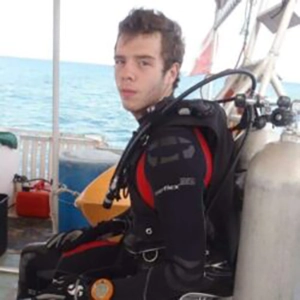
Master of Operational Oceanography
- DMCS
Conor O’Mara
Short Bio:
Conor has a rich background in marine science and environmental studies. He earned his B.S. in
Marine Science, with a minor in Environmental Policy, Institutions, & Behavior from Rutgers
University. Driven by a passion for marine life and coastal sciences, Conor has gained invaluable
experience through transformative internships.
- Central Caribbean Marine Institute (Little Cayman) – Coral Reef Research Intern
- Barbados Sea Turtle Patrol (St. Michaels, Barbados) – Focusing on Hawksbills & Leather Backs. Tagging nesting females or diving to tag juvenile males, nest relocation & excavations, rescue response, and data analysis. Also, direct education & guidance to the local community/travelers.
- Dolphin Cove & Marine Mammal Responder – Husbandry & Research Intern. Assisted in emergency first aid/transport/rehabilitation of Atlantic Bottlenose Dolphins, including veterinarian procedures/surgeries and necropsies.
- Rutgers Aquaculture Innovation Center – Field Technician, working with Oysters/Ribbed Muscles/Surf Clams/Bay Scallops.
- Volunteer Roles: Diver for NY Aquarium, Education & Outreach at Jenkinson Aquarium,
Husbandry/Diver at Staten Island Zoo & Lahaina Wildfire Recovery.
Conor’s professional journey includes influential roles as an Environmental Scientist, where he
conducted Phase I & Phase II environmental site assessments: including data analysis/extrapolation of final certified lab reports. On the other end of the spectrum, he was also an area manager for Costco Wholesale.
Outside of his professional pursuits, Conor exemplifies leadership and resilience, having earned the rank of Eagle Scout with the BSA and being an active member of the Order of the Arrow. He is also a Rescue Level SCUBA Diver & certified in Wetland Delineation.
Patrick Spezzano
Short Bio:
I am from Western New York and attended the University of New England, graduating in 2024 with a Bachelors in Oceanography and
minors in GIS, Applied Math, and Philosophy. My undergraduate research experience primarily involved using various satellite platforms and data products to visualize and understand large scale circulation patterns as well as glacial-ocean interactions in Iceland. I am interested in continuing to explore remote sensing platforms and capabilities in the context of physical ocean characteristics and interactions at Rutgers
Kayla Sullivan
Short Bio:
I grew up in Hunterdon County, NJ, where I developed an interest in animals and the environment. This early passion led me to pursue an associate’s degree in environmental science at Raritan Valley Community College. After graduating, I moved to Manahawkin, NJ, a coastal area, where I found more opportunities to get involved with marine science. This move, along with my transfer to Stockton University, inspired me to focus my studies on marine science and pursue a bachelor’s degree in this field. Through hands-on experience aboard Stockton’s research vessels and in the classroom, I became more familiar and interested in marine technology. During the summer of 2024, I had an opportunity to deepen my curiosities through an internship with Save Barnegat Bay, where I worked on a water quality project in Beach Haven West, NJ. This experience taught me how valuable marine technology is in protecting aquatic environments. I am excited to continue combining my passion for environmental and marine science with innovative technology to positively impact our oceans.

